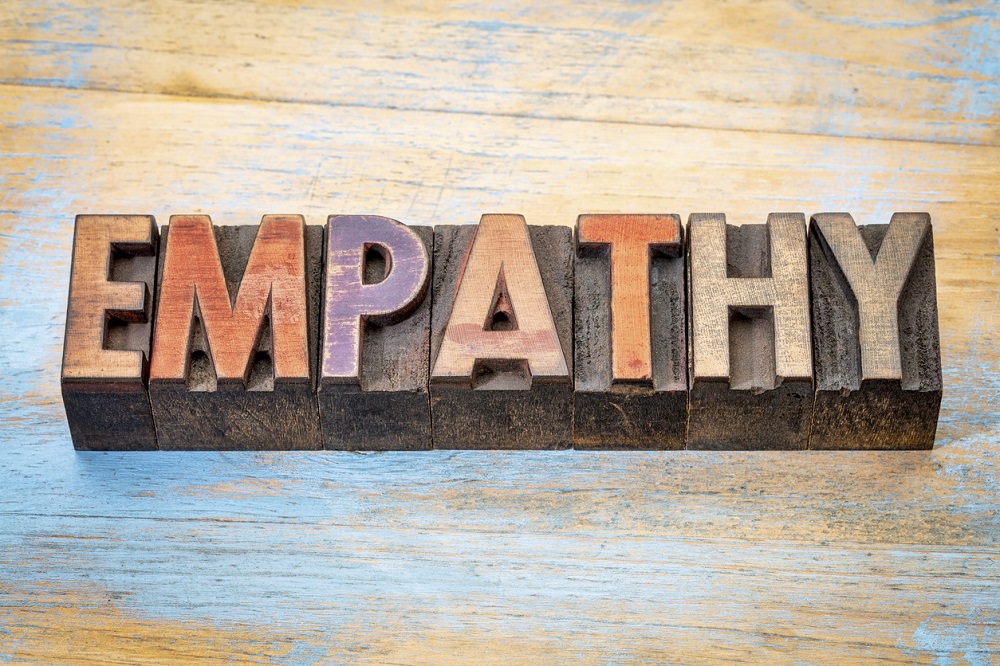Do you feel there’s nothing more you can give? Is empathy in frighteningly short supply? You might think Compassion Fatigue only happens to people in healthcare, law enforcement, emergency response, social services, therapeutic settings and teaching. But it also affects people in professional roles who are overloaded with responsibilities.
You might care deeply and emphatically for the people you manage and lead, but when you’re drowning in demands you can start to suffer from this particular type of exhaustion, one of the costs associated with caring. So, what exactly is Compassion Fatigue, how does it develop over time, who is most at risk of developing it, and can you fix it?

Who is most at risk of Compassion Fatigue?
Everyone who cares profoundly about their work and the people they serve can find themselves mired in Compassion Fatigue. Dedication, commitment and a determination to fulfil all your obligations means you express the value of care day in and day out, sometimes for long hours over months, years, and even decades.
The constant giving, the endless compassion, the cumulative impact of the empathy, humanity, sympathy and tenderness you naturally feel can leave you vulnerable to this special kind of burnout. It’s an ongoing process that leaves you extremely tired and sometimes even desperate. Ultimately it can affect your ability to carry out the work you care so much about.
For more detailed information you may find this link useful. The article is mostly related to Health Care professionals, but it has insights for anyone who is in a role where every day, empathy, care and putting others first are their long-term focus.
https://www.cma.ca/physician-wellness-hub/content/compassion-fatigue-signs-symptoms-and-how-cope

What are the signs of Compassion Fatigue?

The long-term stress involved in a caring role, whether business or healthcare-related, can lead to dramatic mood swings, which can get worse as time passes. Negativity and cynicism, irritability and anger are not your usual default setting but it can soon start to feel that way. You might even start to feel detached, which is particularly hard to handle as person who cares deeply about your role. You might find you want to withdraw socially, neglect friends and family, avoid relationships you once valued, and feel numb about your home life as well as work.
Self-blame is a symptom. Addiction and secret self-medication aren’t unusual, nor is workaholism, something you can fall into as a last-ditch effort to get on top of things. You get less satisfaction from your role. Feelings of anxiety and depression caused by the stress and trauma of losing your compassion, extreme caution, not being safe, demoralisation and losing confidence in your professional abilities only make things worse.
Things like insomnia, trouble concentrating, seeing disturbing images in your imagination and having nightmares make you feel even more tired. A lost appetite, headaches, nausea and digestive problems add a physical component to your struggles.
It’s a disturbing litany of discomfort and unhappiness. Luckily there are things you can do to get over it, alleviate it, or avoid its debilitating effects altogether.
How to handle Compassion Fatigue

As soon as you recognise the warning signs, do what’s needed to stay a step ahead of Compassion Fatigue. The solution is different depending on the person, but there are a few key actions to regulate and relieve the impact of relentless, exhausting, constant giving.
Because the condition leaves you with extreme emotional and physical fatigue, self-care can have a powerful impact. Eating healthily and regularly, staying hydrated and getting the right amount of sleep has an impact, as does taking exercise. Meditation and relaxation techniques are powerful tools and a simple, regular massage can help soothe your distress.
Can you find a comfortable balance between your professional and personal life? Do you take time off when you need it? Avoiding information overload is a good idea, as is being aware of the impact traumatic times have on you. You might want to change your priorities, doing more of the things that give you joy and make you feel rejuvenated.
Gratitude is a powerful tool, as is staying in the moment. It helps to understand deep down, not just intellectually, that you can’t always control people’s suffering. You might find that focusing on the things you can control, keeping your expectations reasonable, alleviates the feelings.

At the end of the day there is light at the end of this tunnel. If none of these good basics shift your pain, reach out for professional support. A therapist can ease your feelings of stress, anxiety and exhaustion through guided talking. They can uncover buried issues that drive your fatigue, and your GP may be able to help. Someone experienced in helping people with PTSD could offer support. So can we, as professional coaches.
Put yourself first to help others more effectively
Because of the deeply caring person you are, you might find it hard to put work aside and focus on your own self. When every instinct is telling you to do more, care more, work harder, you’ll need to make your self-care protocol a personal priority. You will need to say ‘no’ more often. Our coaching can support you in stepping back at work, taking stock and then building those key next practical, resiliency steps.
About us:
We create the space for leaders to step back, think clearly, and navigate complexity with confidence. By sharpening the narrative that drives decisions, teams, and performance, we help leaders move forward with clarity and impact. Our approach blends deep listening, incisive challenge, and commercial focus—strengthening leadership at every level, from business transformation to boardroom decisions.
“We share resources that help coaches deepen their practice and expand their impact. The articles on this site are designed to spark fresh thinking, offer practical tools, and support the continuous growth of coaches at every stage. “
Jude Elliman
Founder
Our Core Approach:
We work with leaders to sharpen their thinking, strengthen their leadership, and navigate complexity with confidence. Our approach is built around three core areas:
Narrative Coaching – Working with the stories that shape leadership, teams, and organisations.
Commercial Focus – Cutting through complexity to drive clear, strategic decisions.
Challenge & Space – Asking the right questions while creating the space to reflect and grow.
Through this, we help leaders drive transformation, align teams, and make high-stakes decisions with clarity and impact.
